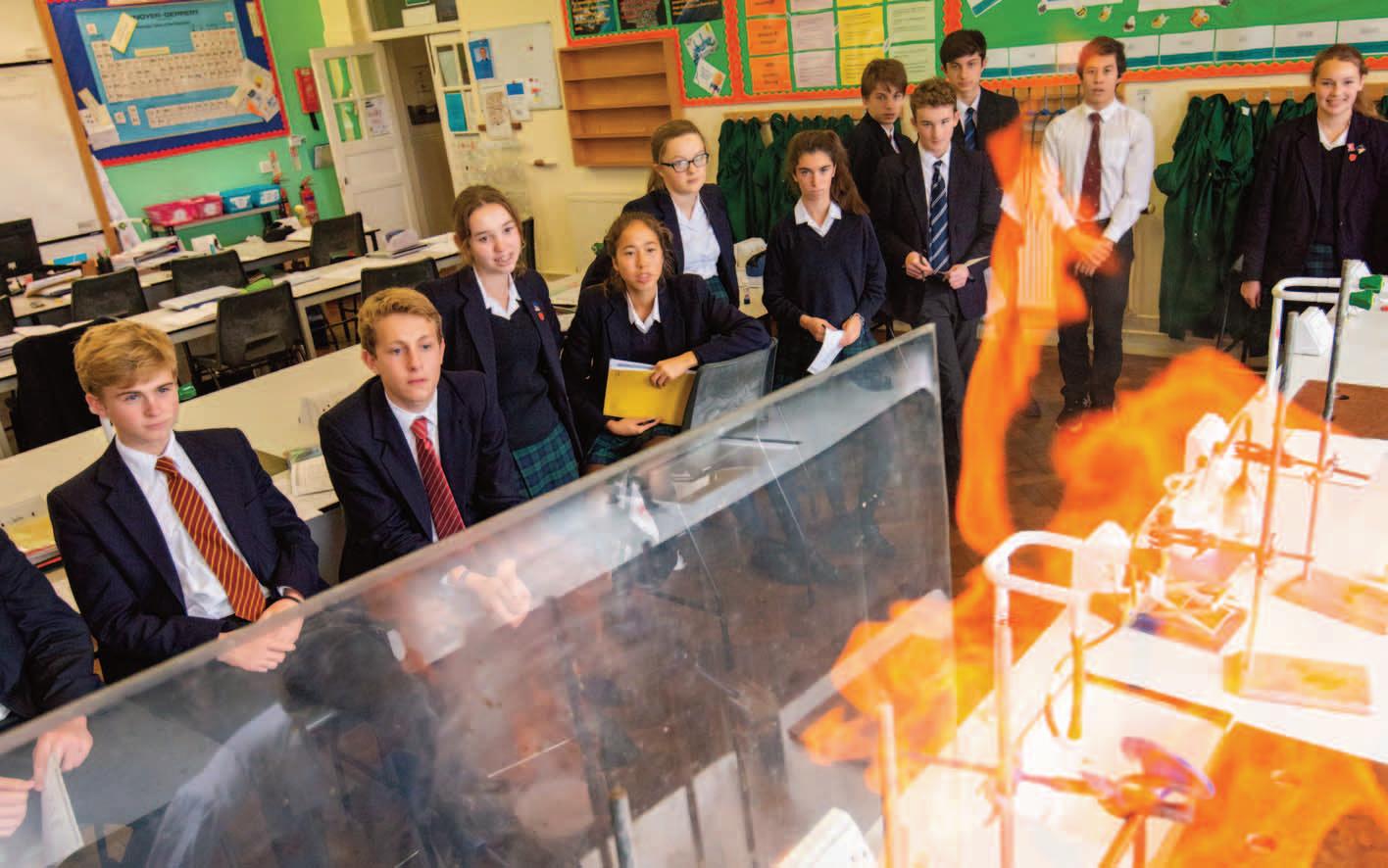
3 minute read
Physical Education
from GCSE Subject Guide
Why should I study PE?
The content of the GCSE Physical Education specification is designed to enable pupils to enjoy and understand the benefits of living a healthy and active lifestyle. Modern society’s emphasis on exercise, diet and their effect on our quality of life mean that pupils will be able to see direct relevance and application of their learning to their everyday life. In addition to the physiological aspect of the course pupils will also be introduced to some elements of sport psychology, in addition to considering the impact of the business world on sport. This includes evaluating both the positive and negative impacts of media and sponsorship on sports performers and major sporting events. 30% of the coursework for Physical Education is practical based. This requires pupils to be assessed in three different sports from the AQA accredited list of activities. Each assessment will require the student to demonstrate a set of core skills in both training and competitive contexts. This course is suitable for anyone who has an interest in sport and exercise at any level, from recreational to international. The different strands of theory are all applied to practical situations, so pupils will find themselves in the gym to witness first-hand the effect of exercise on the body. All pupils will be expected to lead activity sessions to develop their own leadership abilities, whilst participating in sitting volleyball, disabled athletics and blind football will give them an appreciation of the demands placed on disabled athletes.
Advertisement
Expectations of independent study
Pupils will be set one written prep each week which should take 30–45 minutes. The type of task set will vary according to the content being taught, but as an example they may be expected to keep a log of the food they eat over a set period of time, plan a weight training session or produce a newspaper report. The tasks are aimed at improving pupils’ academic skills as well as consolidating learning. Pupils are also expected to allocate 45 minutes per week to independent study including: regular reviewing and updating of notes made in class, reading recommended texts and completing past exam papers.
What do the pupils say?
“Studying PE is extremely enjoyable as it allows us to have a greater understanding of a variety of sports in and out of the classroom.” “What I enjoy most about PE is the combination of taking part in a sport, then learning how and why that sport affects our body.”
What skills will I develop by studying this subject?
Pupils will develop their skills as both a performer and coach. This cultivates improved communication, decisionmaking, negotiation and problemsolving skills. The wide variety of teaching styles, allied to the extremely diverse coursework options, mean pupils will develop all the skills needed for a successful transition to Sixth Form study in any subject.
I enjoy PE because you get to learn the theory by doing a lot of practical activities.
Catalina, Year 11
HEAD OF DEPARTMENT: Mrs L Willis
CONTACT DETAILS: lw@felsted.org
EXAM BOARD: AQA
SYLLABUS CODE: 8582
www.aqa.org.uk
ASSESSMENT:
Unit 1 30% The Human Body and Movement in Physical Activity and Sport
30% of final grade, 75 minute exam at the end of Year 11
Unit 2 30% Socio-Cultural Influences and Well-Being in Physical Activity and Sport
30% of final grade, 75 minute exam at the end of Year 11
Unit 3 40% Practical Performance in Physical Activity & Sport
40% of final grade, 3 practical activities, written analysis and evaluation of their performance in one activity; internal assessment and external moderation in Year 11










